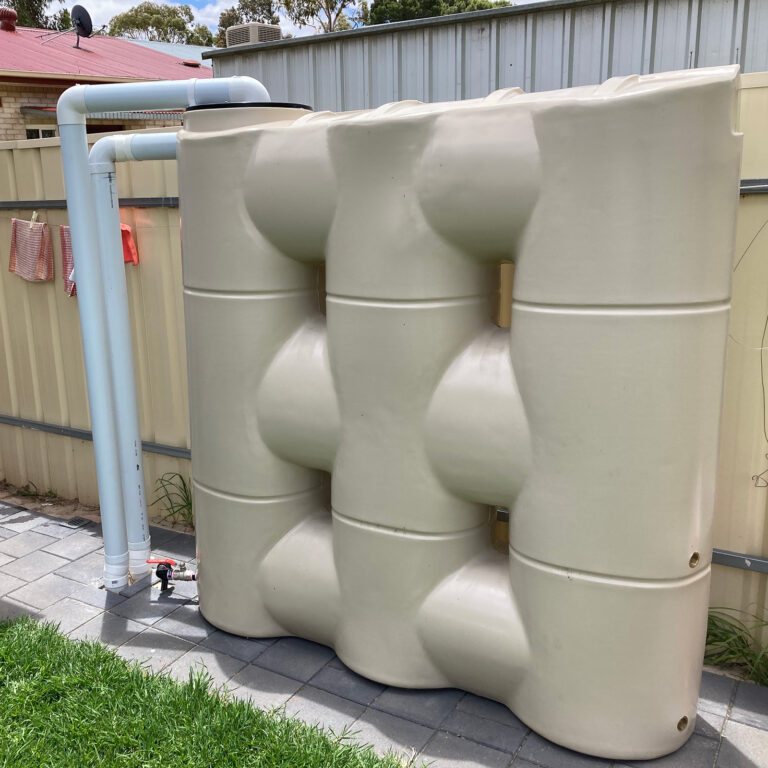Slimline Water Tanks: Space-Saving Solutions for Small Qualities
Slimline Water Tanks: Space-Saving Solutions for Small Qualities
Blog Article
Discovering the Various Uses Rainwater Storage Tanks for Residential and Commercial Characteristics
As the worldwide focus on sustainable living practices continues to increase, the utilization of rain containers in both household and business setups has arised as a relevant service. The multifaceted uses of rain tanks present a compelling instance for their adoption, not just as a functional water-saving step but likewise as a testament to liable source administration.
Advantages of Using Rain Tanks
Utilizing rainwater tanks uses various advantages for both homes and areas in regards to water conservation and sustainability. Among the key benefits of using rain containers is the considerable decrease in reliance on mains water system - Slimline water tanks. By catching and storing rainwater for later use, people and neighborhoods can reduce their need for treated water, ultimately reducing the concern on water treatment centers and lowering energy usage connected with water transportation and therapy
Additionally, rainwater collecting via tanks supplies a dependable different water resource throughout times of water constraints or shortages. This kept rainwater can be utilized for various non-potable purposes such as irrigation, flushing bathrooms, and cleaning garments, minimizing the stress on conventional water resources. Furthermore, using rainwater containers can cause set you back financial savings for both families and communities by reducing water bills and decreasing the requirement for costly facilities growths to meet expanding water demands.
Basically, the utilization of rainwater tanks supplies a lasting and eco-friendly strategy to water monitoring, benefiting both specific customers and the more comprehensive community in terms of water preservation, cost-efficiency, and resilience.
Rainwater Container Use in Watering
Provided the benefits of rain containers in saving water resources and decreasing reliance on keys water, a significant application depends on making use of saved rainwater for irrigation purposes - Slimline water tanks. Rain gathering systems can successfully accumulate and store rainwater, supplying a sustainable water resource for watering gardens, grass, and agricultural fields. By utilizing rain for irrigation, residential property proprietors can minimize their dependence on treated water resources, resulting in cost savings and ecological benefits

One of the main benefits of making use of rain for irrigation is its purity. Rainwater is normally soft and cost-free from the chemicals and ingredients typically discovered in keys water, making it ideal for beneficial plants without the risk of harmful effects. Furthermore, rain is at ambient temperature level, which can profit plant development by staying clear of temperature shocks that can accompany cool mains water.
Rainwater Storage Tanks for Toilet Flushing

Implementing rain storage tanks for commode flushing is an economical and eco-friendly method that can be conveniently integrated into both household and commercial residential or commercial properties. The kept rainwater can be used to flush toilets by connecting the tank to the existing pipes system. This straightforward yet reliable remedy can substantially decrease water usage in a structure, particularly in areas where water scarcity is a worry.

Incorporating Rainwater Containers in Landscape Design
These containers can record and store rain drainage from roofings, which can after that be utilized for watering yards, lawns, and plants. By utilizing rainwater for watering objectives, home proprietors can minimize their dependence on metropolitan water resources, leading to cost financial savings and conservation of valuable water sources.
In enhancement to providing a lasting water source for landscaping needs, rain tanks can likewise help in taking care of stormwater drainage. By recording rainwater that would otherwise flow right into tornado drains pipes, these tanks can alleviate erosion, reduce flooding risks, and protect against air pollution of natural water bodies. Incorporating rain containers in landscaping can contribute to the total visual charm of the home, showcasing a dedication to ecological stewardship.
Industrial Applications of Rain Tanks
Making use of rain containers in commercial setups uses a lasting remedy for water monitoring and conservation, benefiting services and the setting alike. One crucial industrial usage is for watering objectives, where harvested rainwater can be used to water landscaping, gardens, and agricultural areas surrounding commercial residential or commercial properties.
In addition, rain tanks can be integrated into the check out this site fire suppression systems of commercial structures. By having a dedicated water source for firefighting objectives, businesses can improve their fire precaution and potentially decrease insurance costs. Additionally, rain accumulated in tanks can be treated and made use of for non-potable purposes within industrial residential or commercial properties, such as flushing commodes, cleaning, and cooling down systems. This not only saves fresh water his explanation resources yet additionally reduces operating expenses for businesses. Overall, the consolidation of rainwater storage tanks in commercial setups presents a sensible and ecologically liable approach to water monitoring.
Final Thought
From irrigation to toilet flushing and landscape design, the use of rain tanks can aid preserve water resources and reduce water expenses. In general, the versatility and sustainability of rain tanks make them an important financial investment for any type of residential or commercial property owner looking to boost water performance.
Report this page